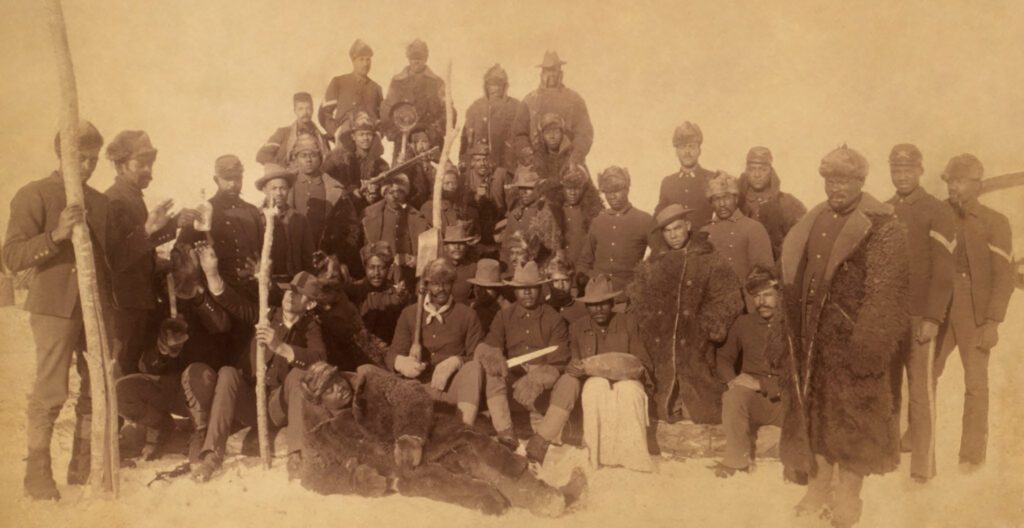By Stacy M. Brown
NNPA Senior National
Correspondent
Army Secretary Christine Wormuth formally gave the greenlight to overturn the court-martial convictions of 110 Black soldiers from the 3rd Battalion, 24th Infantry Regiment, popularly known as the Buffalo Soldiers. The Army said in a news release that officials made the decision based on a suggestion from the Board for Correction of Military Records and to atone for the unfair treatment of soldiers after the 1917 Houston Riots.
“After a thorough review, the Board has found that these Soldiers were wrongly treated because of their race and were not given fair trials,” Secretary Wormuth stated. “By setting aside their convictions and granting honorable discharges, the Army is acknowledging past mistakes and setting the record straight.”
The Houston Riots, which erupted on August 23, 1917, stemmed from racial tensions and provocations against members of the 24th Infantry Regiment. The catalyst for the riots was the violent arrest and assault of two Black Soldiers, leading to a group of 110 soldiers seizing weapons and marching into the city. Clashes ensued, resulting in 19 deaths.
The subsequent trials of the soldiers were marred by irregularities, according to historians, culminating in the largest mass execution of American Soldiers by the U.S. Army. The Army’s immediate regulatory change, prohibiting future executions without proper review, followed the initially secretive executions.

The South Texas College of Law, in October 2020 and December 2021, petitioned the Army for a review of the court-martial. Retired general officers also submitted petitions requesting clemency for the soldiers.
“We cannot change the past; however, this decision provides the Army and the American people an opportunity to learn from this difficult moment in our history,” Under Secretary of the Army, Gabe Camarillo, said in the release.
At the Secretary’s request, the Army Board for Correction of Military Records meticulously reviewed records related to the court-martial cases, officials affirmed. The unanimous decision was that significant deficiencies permeated the proceedings, rendering them fundamentally unfair. The board recommended setting aside all convictions and characterizing the soldiers’ military service as “honorable.”
“It is a long time coming, but it is justice that is finally achieved,” John Haymond, a historian, told the New York Times.
The U.S. Department of Veterans Affairs said it actively supports family members affected by the correction of records, offering assistance upon receipt of the amended documents.
Family members of the 110 Soldiers may be entitled to benefits, and guidelines for applying to the Army Board for Correction of Military Records can be found online or through mail to Army Review Boards Agency (ARBA), 251 18th Street South, Suite 385, Arlington, VA 22202-3531. Applications should include documentation proving a relationship to one of the 110 formerly convicted soldiers.
Family members and interested parties can request a copy of the corrected records from the National Archives and Records Administration, following the NARA Archival Records Request procedures.




